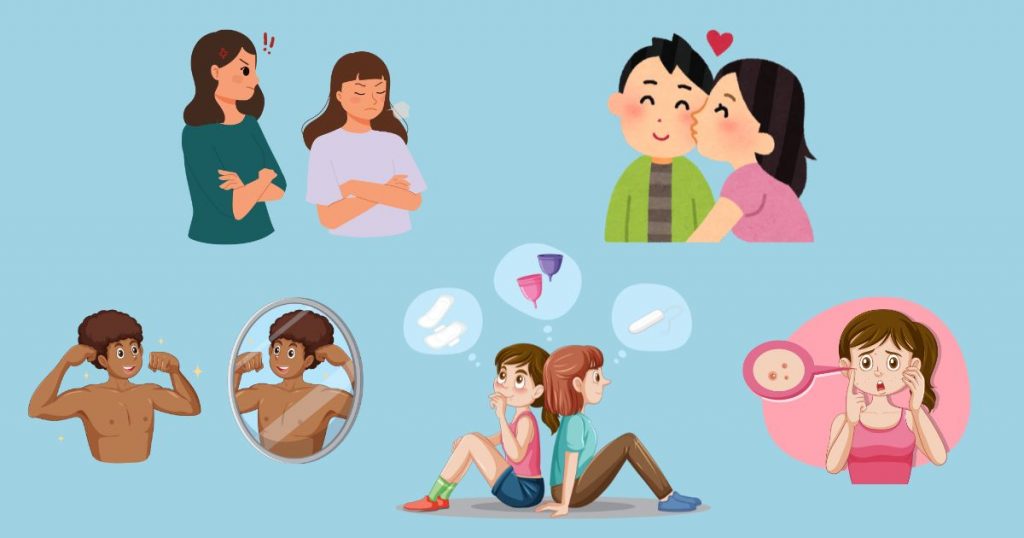
If you are the parent of an adolescent, you may have already recognized some major changes going on with your child. Most of these changes are normal and a natural part of this transition from child to adult. However, there are some changes in behavior/thinking that might be a cause for concern and may need to be addressed.
So how do you know if your child is experiencing “normal” symptoms or something more concerning?
You know your child and if something just isn’t right, listen to your intuition. Chances are it may be right.
If your child is grumpy, hormonal, moody or testing boundaries with you- that is probably normal. I have three teen children of my own and the power struggle is real! 🙂
However, if your child is showing signs of withdrawing, self-isolating, or major changes in behavior, sleeping or eating patterns, you should begin to pay extra attention to what’s going on and try to talk to them.
Adolescents are experiencing what I refer to as a limbo period. Not a child, but not yet an adult. This can be an incredibly frustrating time of life for a person. They want to begin to express new ideas, thoughts and experiences but often won’t be taken seriously as they are “just a kid”. They are finding themselves, exploring their sexual identities, and making their way in a new social realm, all while their bodies are being flooded with hormones. This is not easy.
As a youth specialist, I work primarily with adolescents and I can’t tell you how often I hear the phrase, “My parents don’t understand me”. They feel their thoughts and feelings are not validated. They feel misunderstood. They feel alone. These feelings can lead to distress.
Try talking more openly to your child. Dig into those topics that are normally not discussed. They may think it’s “awkward” (a word I hear often) but it gets less uncomfortable the more you keep that dialogue going. Don’t just talk, listen. Be an active listener to your child. Let them know that you care about how they feel. Don’t assume they know as much.
If he/she isn’t comfortable opening up to you and your gut is telling you that something isn’t right, it’s okay to reach out on their behalf. Be your child’s advocate. We are not less of a parent because our children prefer to talk to an objective person. It makes us better parents for getting them the help they need and deserve.
I’m here to help if you feel your adolescent can benefit from talking to someone. I’m also here if you, as a parent, would like to discuss how to better navigate the world of parenting.
Anxiety, depression, low self-esteem, life changes, fears, social interaction struggles, parenting skills, self-harm, eating issues, or suicidal ideation.
Please call Life Focus Center and ask for Colleen
626-330-7990
